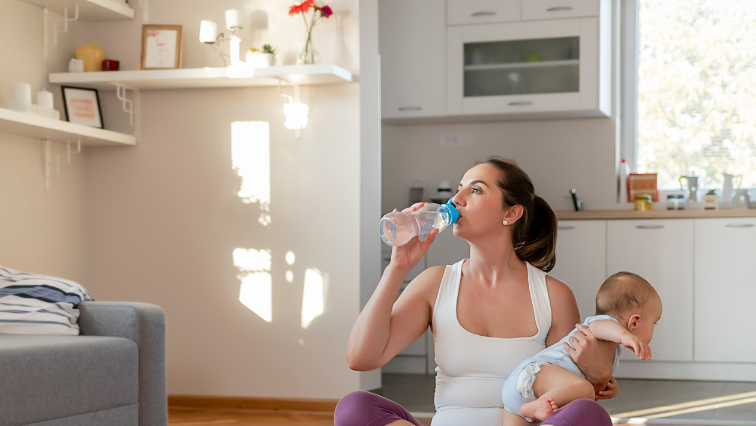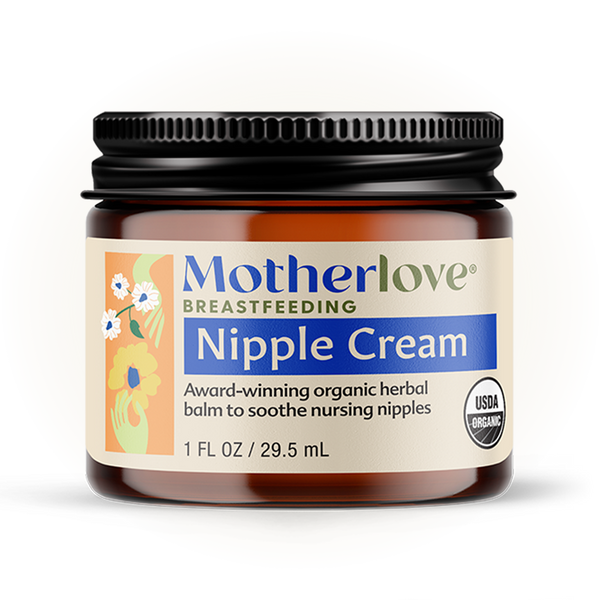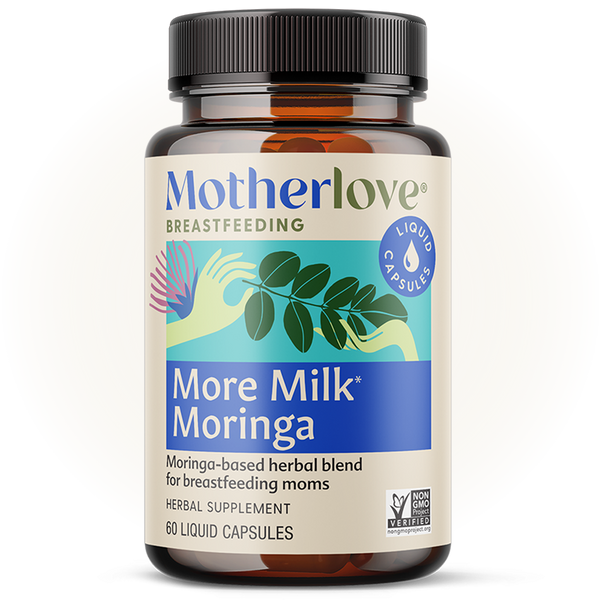Written by Wendy, IBCLC.
It’s common to be unsure about how much water or fluids you should be drinking while breastfeeding. After all, your breastmilk is made primarily of water (a whopping 80%!), and in the early months of breastfeeding, you are your baby’s primary hydration source. Shouldn’t that mean you need to drink a ton of water while breastfeeding?
While fluid and water intake is important, there are some myths surrounding it, including that you need to drink a very specific amount—or a certain type of fluid—to nurse your little one. I remember being told by a pediatrician that if I wanted to successfully breastfeed my baby, I had to drink a quart of cow’s milk per day! (Hint: you don’t need to drink milk to make milk.)
That being said, there are some things all breastfeeding parents should be aware of when it comes to water intake and breastfeeding. Let’s take a look.
HOW MUCH WATER SHOULD YOU DRINK?
Unfortunately, there is no clear answer to this question.
An exclusively breastfeeding baby will take in approximately 25 ounces of breast milk per day. Most breastfeeding parents end up feeling extra thirsty while nursing, and usually, just being guided by your thirst is enough to ensure that you are taking in enough fluids. You can also take note of whether you are showing signs of dehydration, such as peeing less frequently than usual, having a very dry mouth, or experiencing dark-colored urine.
When it comes to caloric needs while breastfeeding, there are some clear guidelines, where sources like the National Institutes of Health and the American College of Obstetricians and Gynecologists, recommend you take in an additional 450 to 500 calories while breastfeeding. There aren’t similar guidelines for water intake.
Still, some people are looking for clear numbers in terms of fluid intake. Sources like the Academy of Nutrition and Dietetics recommend that nursing parents consume a total of 16 cups of water each day. This may not be the exact number of ounces that’s right for you. It’s also recommended that you have a glass of water each time you sit down to nurse, and this is something that many nursing parents naturally end up doing.
If you are uncertain about the right amount of water intake for your body and your baby, please reach out to a healthcare professional.
WILL DRINKING MORE WATER INCREASE MY MILK SUPPLY?
When people are struggling with milk supply issues, one common recommendation is to increase water intake. The idea is that drinking more water will increase your milk supply. At this time, though, there is no evidence that this is the case. The most important factor for milk supply is nursing or pumping frequency. The more you nurse or pump, the more milk you will produce. To learn more about power pumping and how it can help increase milk supply, check out our blog.
Of course, there are other factors that may impact milk supply, and if you are having trouble producing enough milk for your baby, you should reach out to a breastfeeding counselor or lactation consultant.
CAN YOU DRINK TOO MUCH WATER WHILE BREASTFEEDING?
Drinking an excessive amount of water during breastfeeding won’t increase your milk supply, but it’s also unlikely to be harmful to your baby. The main issue with drinking too much water is that you might experience something called water toxicity. Symptoms include disorientation, headache, nausea, and vomiting. However, water toxicity is rare in adults, even when large amounts of water are consumed.
DOES YOUR BABY NEED EXTRA FLUIDS?
For the first six months of life, your baby should only consume either breastmilk or formula. Lots of parents worry about when it’s very hot outside or when their babies are sick. Should you offer sips of water in these circumstances? According to the World Health Organization, this isn’t something you can do, because supplemental water intake in small babies can lead to diarrhea and malnutrition. Extra fluids may also cause your baby to breastfeed less, which could lead to milk supply issues and slowed weight gain.
THE BOTTOM LINE
The topic of water intake while breastfeeding can get a little confusing. Yes, most people find they need to drink more fluids while breastfeeding, but there aren’t clear guidelines about how much. You can mostly use common sense and mostly follow your cravings for water on this one. It can also be super helpful to keep a water bottle next to the places you commonly breastfeed your baby—by the couch, your bed, etc.—so that drinking water isn’t even something you need to think about.
At the same time, if you find yourself dehydrated no matter how much you drink, or if you are feeling concerned about your own health and nutrition, you shouldn’t hesitate to reach out to your healthcare provider. The same is true if you have any questions about your milk supply or your baby’s nutrition.
But for most of us, how much water we drink during breastfeeding isn’t something to be overly concerned with. You’re definitely going to be extra thirsty, and the best advice is to just go with it, and drink up.
*This is not intended to be medical advice. Please consult with your healthcare provider.






